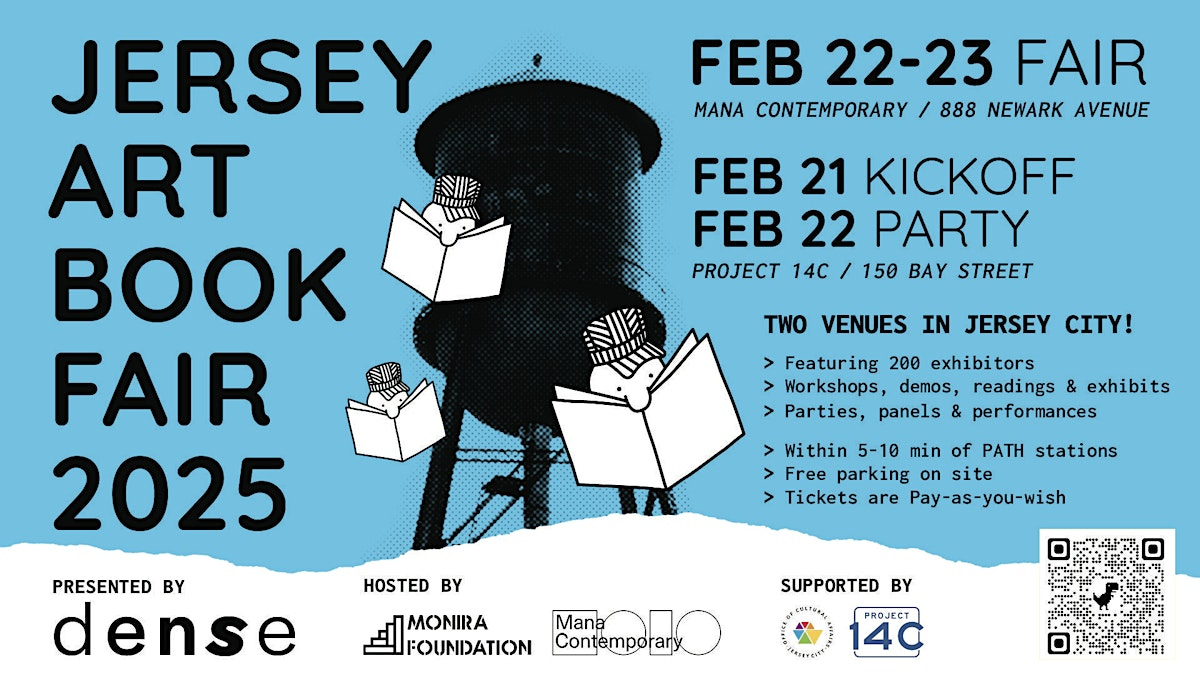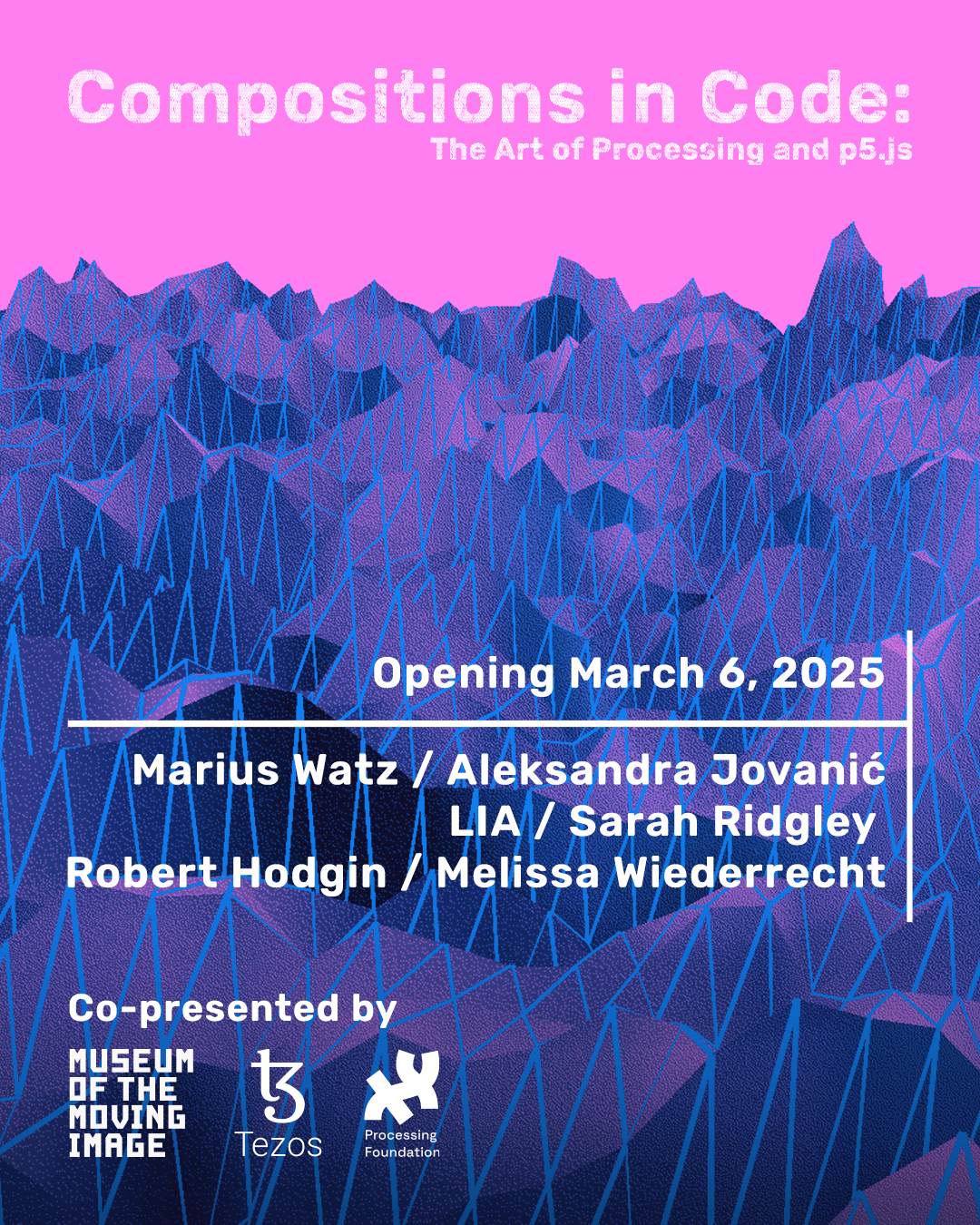Columbia DSL - Newsletter
This month, we’re exploring the intersection of art, technology, and narrative—from immersive democracy rituals to cutting-edge AI and blockchain experiments. Join us for participatory experiences like Compositions in Code at MoMI and the latest Test/Break prototyping series at Lincoln Center. Whether you’re a filmmaker, game designer, artist, or technologist, we invite you to collaborate, experiment, and push the boundaries of storytelling with us.
COLUMBIA DSL EXHIBITION CATALOG
Last semester, Columbia DSL, in collaboration with Film at Lincoln Center, hosted an exhibition showcasing student work at the intersection of Generative AI, Machine Learning, XR, VR, AR, IoT, and browser-based technologies. Today, we’re excited to release our first exhibition catalog, featuring 17 student projects that push at the edges of storytelling, design, and play.
Featuring projects from the New Media Art and Digital Storytelling III: Immersive Production courses, the showcase invited audiences to engage with interactive installations, speculative artifacts, and Fluxus-inspired performances utilizing emerging technologies. Artifacts of Control transformed the space into a futuristic archaeological dig, unearthing speculative relics that critique contemporary surveillance systems. Meanwhile, DEMOCRACY IN FLUX blended robotics, AI, and performance with playful absurdity, examining the role of bureaucracy within democratic systems.
This exhibition marks an exciting step in expanding the dialogue around immersive media and digital storytelling. See the full catalog below.
UPCOMING EVENTS
Columbia DSL’s newest prototype Democracy in Flux heads to Mana Contemporary for the Jersey Art Book Fair
Step into a world where art and life intertwine: "Democracy in Flux" is an immersive event inspired by the Fluxus art movement of the 60s. Just as Fluxus artists blurred the lines between creator and audience, we're inviting you to become an active participant in reimagining our democratic systems. In an era where technology and bureaucracy tend to make democracy feel cold and labyrinthian, you'll engage in interactive scenarios that take the inhumane qualities of modern governance and transform them into playful, absurd rituals. By working with the form of FluxKits—portable collections of artistic experiments—you'll delve into the heart of these issues. This hands-on experience encourages critical reflection and channels collective frustration into a catalyst for change.
Sunday, February 21st
3:30pm - 5:00pm
Mana Contemporary
888 Newark Avenue
Jersey City, NJ 07306
The Future of Storytelling: Art, Tech & Decentralization
Join us for an evening of art & code, a Columbia DSL gathering that explores the evolving relationship between creative technology and storytelling. This open classroom invites students, practitioners, and industry professionals from across film, TV, gaming, theatre, podcasting, and beyond to engage in a deep dive into the past, present, and future of storytelling through technology.
We’ll examine historic intersections of art and tech—such as Experiments in Art and Technology (E.A.T.)—while also uncovering how emerging and decentralized technologies are reshaping narrative forms today. How do blockchain, AI, and new digital infrastructures influence the way we tell, share, and experience stories? How can we harness these tools to push the boundaries of creative expression?
This is a space for collective exploration, experimentation, and discussion. Whether you’re a storyteller, technologist, researcher, or just curious about the future of narrative, we invite you to take part in this Columbia DSL community conversation.
Monday, March 3rd
7pm to 9pm
Solana Foundation
141 E. Houston Street, 6th Floor
New York, NY 10002.
Compositions in Code: The Art of Processing and p5.js
Join Museum of the Moving Image, the Tezos Foundation, and the Processing Foundation to celebrate the opening of Compositions in Code: The Art of Processing and p5.js on March 6.
The evening will feature a reception and discussion with artist Marius Watz; Aleksandra Artamonovskaja, Head of Arts at Trilitech, Tezos Ecosystem; and Roopa Vasudevan, mentor from the Processing Foundation; moderated by Regina Harsanyi, Associate Curator of Media Arts at MoMI.
Compositions in Code will be on view through August 24 on the Museum's Schlosser Media Wall, featuring diptychs by…
TEST/BREAK - an evening of prototyping with Columbia DSL
Test/Break is a monthly prototyping series by Columbia DSL. Join us as we delve into an array of projects in different stages of development. Test/Break offers a platform for creatives to explore groundbreaking forms and functions of storytelling. We focus on projects that push the boundaries of narrative possibilities, leveraging emerging tech like AI, AR, VR, and IoT as well as web-pervasive technologies. It's a unique opportunity for virtual creators, fostering collaboration and experimenting with participatory methods of interaction. After each prototyping session, we open the floor for engaging conversations that unveil the secrets of creative practice. Don't miss out on this exciting journey of innovation and storytelling!
Monday, March 17th
7pm to 9pm Eastern Time
Film at Lincoln Center -
Elinor Bunin Munroe Film Center
144 W 65th St · New York, NY
LINKS
Social media is in a death spiral – so what comes next?
It’s clear that X, Instagram and TikTok are broken, but the problem runs deeper than any single platform. Is it possible to build something better?
On January 20, 2025, during the second inauguration of Donald Trump, the incoming president was flanked by many of America’s most important Big Tech CEOs. Elon Musk (X), Mark Zuckerberg (Meta), Jeff Bezos (Amazon), and Sundar Pichai (Google) occupied prime seats, with Shou Zi Chew (TikTok) not far behind. Their prominence at the ceremony could be seen as a show of strength from Trump’s team, showcasing Silicon Valley’s conversion to its cause after years of opposition. But the decision to place tech leaders centre stage also spoke to their profound influence on politics in 2025, through their collective control of almost everything we see online. What we were looking at, suggested New York Times journalist Ezra Klein, was America’s new “attentional oligarchy”.
Models All the Way Down
“If you want to make a really big AI model — the kind that can generate images or do your homework, or build this website, or fake a moon landing — you start by finding a really big training set.
Images and words, harvested by the billions from the internet, material to build the world that your AI model will reflect back to you.
What this training set contains is extremely important. More than any other thing, it will influence what your model can do and how well it does it.
Yet few people in the world have spent the time to look at what these sets that feed their models contain.”
Columbia DSL Newsletter
Get Involved
Join over 1,500 practitioners from around the world working with story, design and code. The Columbia DSL’s prototyping community is place to learn and network. Gain access to resources, working groups, open source code and much more.
Volunteers Wanted
We’re looking for volunteers to help with a new research project focused on bridging physical and virtual experiences. If you’re interested please email us at hello@digitalstorytellinglab.com







